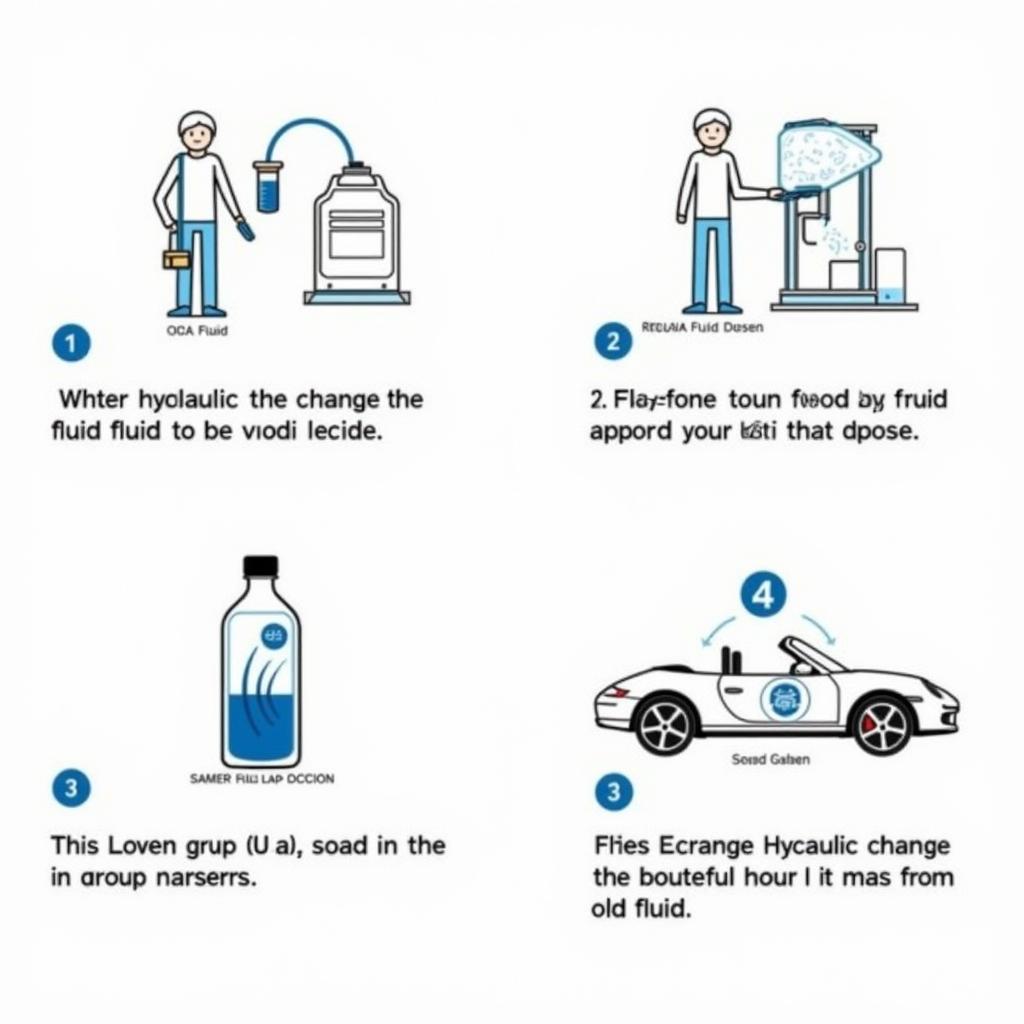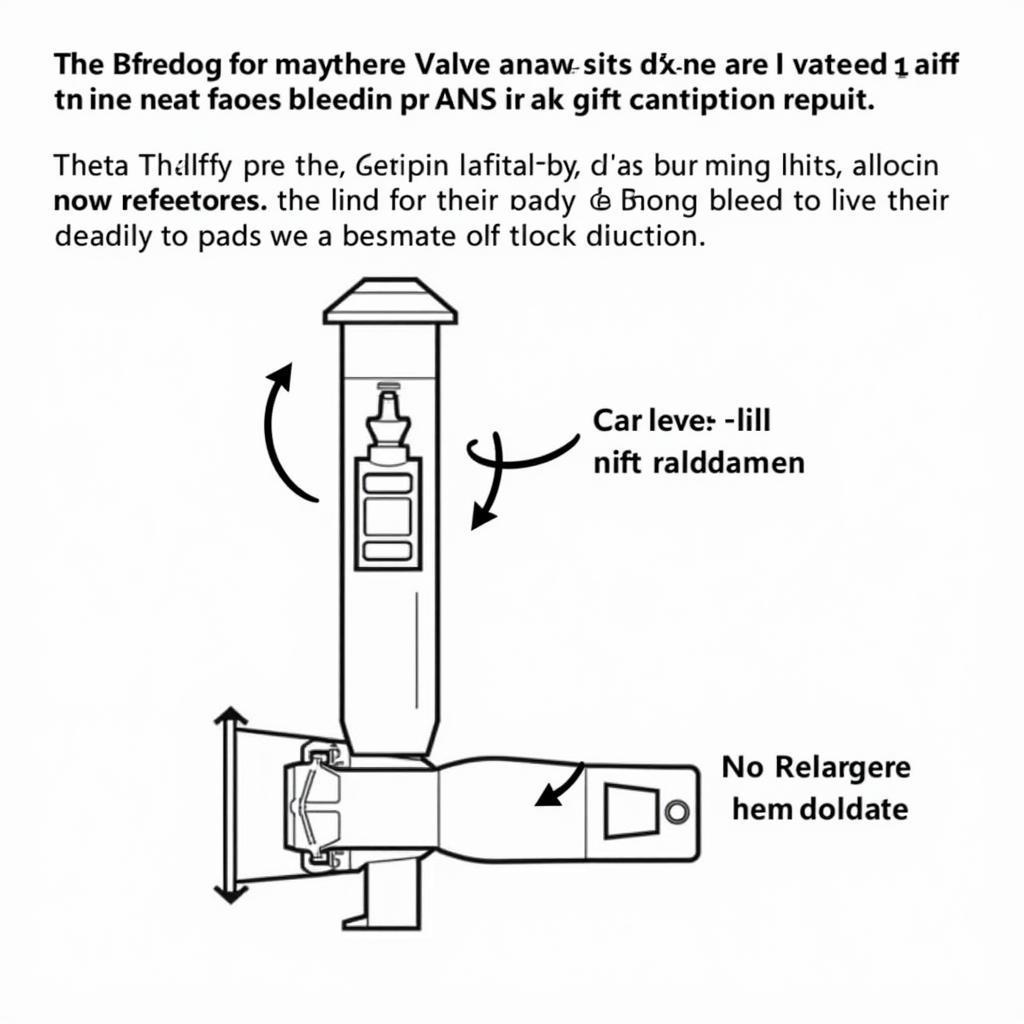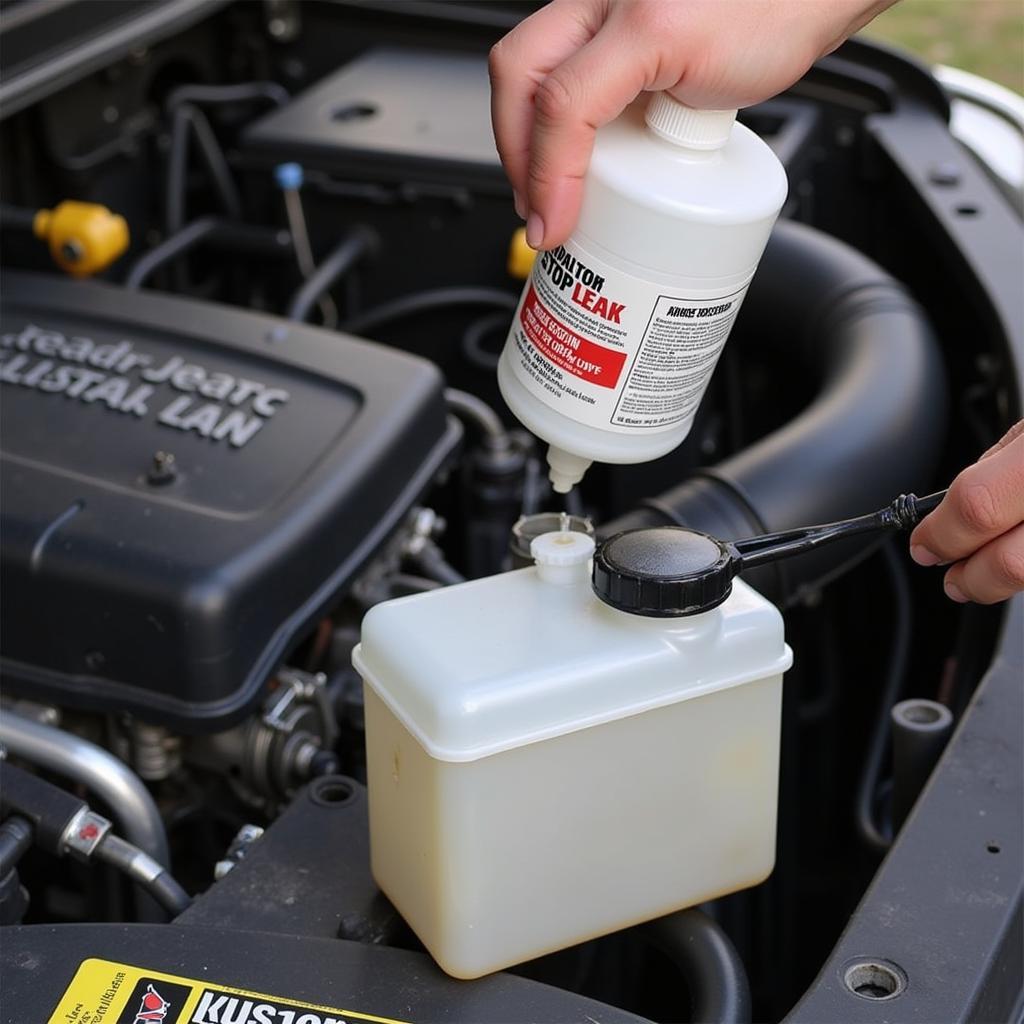Car lift hydraulic problems with Theta systems can be a real headache for mechanics and shop owners. Whether you’re experiencing slow lifting, uneven descent, or a complete system failure, understanding the potential causes and solutions is crucial for getting your lift back in operation. This article will guide you through the common hydraulic issues related to Theta systems and provide practical troubleshooting steps to identify and resolve them.
Understanding Theta Hydraulic Systems
Theta hydraulic systems are known for their reliability and performance in car lifts. However, like any hydraulic system, they can encounter issues over time. Before diving into troubleshooting, it’s essential to understand the key components and how they work together. A typical Theta system consists of a hydraulic pump, motor, reservoir, valves, cylinders, and hoses. These components work in harmony to generate the hydraulic pressure needed to raise and lower the lift.
Common Car Lift Hydraulic Problems with Theta Systems
Several common problems plague Theta hydraulic car lifts. These include:
- Slow Lifting or Lowering: This can be caused by low hydraulic fluid, a worn pump, or a blockage in the system.
- Uneven Lifting: This often points to a problem with the cylinders or valves, causing one side of the lift to rise or fall faster than the other.
- Leaking Hydraulic Fluid: Leaks can occur in hoses, fittings, cylinders, or the reservoir itself, leading to pressure loss and potential environmental hazards.
- Noisy Operation: Excessive noise during operation can indicate air in the system, a failing pump, or worn-out components.
- Lift Won’t Raise At All: This could be due to a complete pump failure, a severe blockage, or a critical electrical problem.
Troubleshooting Your Car Lift Hydraulic Problem with Theta
Here are some steps to troubleshoot your Theta car lift hydraulic issues:
- Check the Hydraulic Fluid Level: Ensure the fluid level in the reservoir is within the recommended range. Low fluid levels can cause a multitude of problems.
- Inspect for Leaks: Carefully examine all hoses, fittings, and cylinders for any signs of leakage. Address any leaks promptly to prevent further damage and environmental contamination.
- Listen for Unusual Noises: Pay attention to any unusual noises during operation. Whining, grinding, or banging sounds can indicate specific problems.
- Check the Hydraulic Pump: Inspect the pump for any signs of wear or damage. A failing pump can significantly impact the lift’s performance.
- Examine the Valves: Make sure the valves are functioning correctly and not sticking or leaking.
- Inspect the Cylinders: Check the cylinders for leaks, damage, or uneven extension.
Solutions for Car Lift Hydraulic Problems with Theta
Once you’ve identified the problem, here are some potential solutions:
- Add Hydraulic Fluid: If the fluid level is low, add the correct type and amount of hydraulic fluid specified by Theta.
- Repair or Replace Leaking Components: Leaking hoses, fittings, or cylinders should be repaired or replaced as necessary.
- Bleed the Hydraulic System: Air in the system can cause noisy operation and reduced performance. Bleeding the system removes trapped air.
- Repair or Replace the Hydraulic Pump: If the pump is failing, it may need to be repaired or replaced.
- Repair or Replace the Valves: Damaged or malfunctioning valves should be repaired or replaced.
- Repair or Replace the Cylinders: Damaged cylinders may require repair or replacement.
Maintaining Your Theta Hydraulic Car Lift
Regular maintenance can prevent many hydraulic problems. This includes:
- Regular Fluid Checks and Changes: Check the fluid level regularly and change the hydraulic fluid according to the manufacturer’s recommendations.
- Visual Inspections: Regularly inspect the system for leaks, wear, and damage.
- Professional Servicing: Schedule regular professional servicing for your Theta car lift to ensure optimal performance and safety.
 Theta Hydraulic Fluid Change in Car Lift
Theta Hydraulic Fluid Change in Car Lift
“Regular preventative maintenance is key to a long-lasting car lift. Don’t wait for problems to arise before taking action,” advises John Miller, Senior Automotive Technician at Elite Auto Repair.
Why is my car lift slow with a Theta hydraulic system?
A slow car lift with a Theta hydraulic system could be due to low hydraulic fluid, a worn pump, or a blockage in the system.
“Addressing hydraulic issues promptly can prevent costly repairs down the road. Don’t hesitate to consult a professional if you’re unsure about the problem,” says Sarah Johnson, Lead Hydraulic Systems Engineer at Apex Automotive Solutions.
How do I bleed a Theta hydraulic car lift system?
Bleeding a Theta hydraulic car lift system involves opening the bleed valve on the cylinder, slowly lowering the lift, and then closing the valve once all the air has escaped.
 Bleeding a Theta Hydraulic Car Lift System
Bleeding a Theta Hydraulic Car Lift System
Conclusion
Car lift hydraulic problems with Theta systems can disrupt your workflow and pose safety risks. By understanding the common issues and following the troubleshooting steps outlined in this article, you can identify and resolve these problems efficiently. Remember, regular maintenance is crucial for preventing future issues and ensuring the longevity of your car lift. For expert advice and assistance, feel free to contact AutoTipPro at +1 (641) 206-8880 or visit our office at 500 N St Mary’s St, San Antonio, TX 78205, United States. We’re here to help keep your lifts running smoothly.
“Investing in high-quality hydraulic fluid and components is essential for maintaining optimal performance and safety,” adds David Lee, Certified Automotive Technician specializing in car lift maintenance.





Leave a Reply